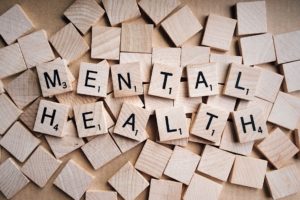
Are you or a loved one struggling with a mental health or substance use disorder? If so, one of the first steps you can take is to seek help at the Substance Abuse and Mental Health Services Administration (SAMHSA). From educational tools and treatment locators to 24/7 national helplines, SAMHSA offers numerous resources to help you or your loved one on the road to recovery.
What is The Substance Abuse & Mental Health Services Administration?
Established by Congress in 1992, SAMHSA is the only agency within the U.S. Department of Health and Human Services devoted solely to advancing the behavioral health of the nation. Its primary goal is to “reduce the impact of substance abuse and mental illness on America's communities” [1].
SAMHSA operates on the following four principles:
- Behavioral health is essential to health
- Prevention works
- Treatment is effective
- People recover from mental and substance use disorders [2]
Though SAMHSA’s core purpose is to develop policies and facilitate resources (grants, contracts, programs, etc.) that prioritize behavioral health at the state and national levels, SAMHSA also provides practical resources, support, and help for people struggling with addictions and mental health disorders.
Four Ways SAMHSA Can Help You
SAMHSA National Helpline
SAMHSA’s National Helplines offers 24-7, 365-day-a-year support to individuals and family members facing substance use and/or mental health disorders. Simply call 1-800-662-4357 to speak with a trained information specialist about your specific needs. Not only will you get helpful information about mental and/or substance use disorders, but they will also give you referrals to local treatment facilities, community organizations, and support groups.
Additionally, if you don’t have insurance, SAMHSA’s helpline specialists will help you get in touch with state-funded treatment programs and/or refer you to treatment facilities that accept Medicaid, Medicare, or charge on a sliding fee scale. In short, if you or a loved one are suffering from a mental health or substance use disorder and want to seek help and make a change, SAMHSA’s National Helpline is a great place to start.
Suicide Prevention Lifeline
 The National Suicide Prevention Lifeline is a SAMHSA-funded, toll-free hotline available 24/7 to anyone who may be in distress, thinking about suicide, or simply needing extra emotional support. The Suicide Prevention Lifeline (1-800-273-8255) also provides crisis and prevention resources and best practices for you, your loved ones, or professionals.
The National Suicide Prevention Lifeline is a SAMHSA-funded, toll-free hotline available 24/7 to anyone who may be in distress, thinking about suicide, or simply needing extra emotional support. The Suicide Prevention Lifeline (1-800-273-8255) also provides crisis and prevention resources and best practices for you, your loved ones, or professionals.
Treatment Finder
SAMHSA’s Behavioral Health Treatment Services Locator is a simple search tool that allows you to find substance use, mental health, buprenorphine practitioners, and health care centers in your local area. Simply visit findtreatment.samhsa.gov and enter your address, city, or zip code to confidentially and anonymously find treatment centers near you. With the treatment finder, you can also select which specific service/s (e.g., substance use treatment centers or mental health care facilities) you are looking for.
Educational Resources
Finally, SAMHSA provides numerous resources and educational information to help you and/or your loved ones understand addiction and mental illness. Just go to samhsa.gov and click on “Public Messages” to find out more.
Additionally, SAMHSA’s Suicide Prevention Lifeline website offers numerous resources for anyone struggling with mental health issues, suicide thoughts, or addiction. Visit suicidepreventionlifeline.org and click on “Learn” to read everything from real-life stories of hope and recovery to practical tips on how to help a struggling loved one.
If you or a loved one need help for an addiction, mental health disorder, or suicidal thoughts but aren’t sure where to turn, start by calling the SAMHSA National Helpline or Suicide Prevention Lifeline. You’ll be connected to a trained specialist who can refer you to treatment options in your area, give you emotional support, and provide you with helpful resources to start you on your recovery journey. And if you’re not quite ready to speak with someone over the phone, simply visit the SAMHSA website to learn more about substance use and mental illness and find treatment options in your area.
References:
[1] SAMHSA – At a Glance. Substance Abuse and Mental Health Services Administration. https://www.samhsa.gov/sites/default/files/samhsa-at-a-glance.pdf.
[2] ibid.
About the Author:
 Sarah Musick is a freelance writer who specializes in eating disorder awareness and education. After battling with a 4-years long eating disorder, she made it her mission to help others find hope and healing in recovery.
Sarah Musick is a freelance writer who specializes in eating disorder awareness and education. After battling with a 4-years long eating disorder, she made it her mission to help others find hope and healing in recovery.
Her work has been featured on numerous eating disorder blogs and websites. When she’s not writing, Sarah is off traveling the world with her husband.
The opinions and views of our guest contributors are shared to provide a broad perspective of addictions. These are not necessarily the views of Addiction Hope, but an effort to offer a discussion of various issues by different concerned individuals.
We at Addiction Hope understand that addictions result from multiple physical, emotional, environmental, and genetic factors. If you or a loved one are suffering from an addiction, please know that there is hope for you, and seek immediate professional help.
Published on March 16, 2021, on AddictionHope.com
Reviewed & Approved on March 16, 2021, by Jacquelyn Ekern, MS, LPC
